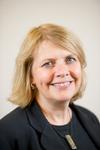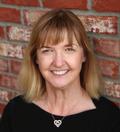Cited By
View all- Maiorana FCsizmadia ACristaldii GRiedesel C(2024)Education With PassionNavigating Computer Science Education in the 21st Century10.4018/979-8-3693-1066-3.ch007(129-148)Online publication date: 8-Mar-2024
- Childs KWaite J(2024)Funds of identity and culturally responsive computing: K-5 teachers' adaptations to computing resourcesProceedings of the 19th WiPSCE Conference on Primary and Secondary Computing Education Research10.1145/3677619.3678106(1-10)Online publication date: 16-Sep-2024
- Sentance SWhyte RKirby D(2024)Exploring Transformative Professional Development Within K-12 Computing EducationInformatics in Schools. Innovative Approaches to Computer Science Teaching and Learning10.1007/978-3-031-73474-8_11(139-151)Online publication date: 27-Oct-2024
- Show More Cited By




